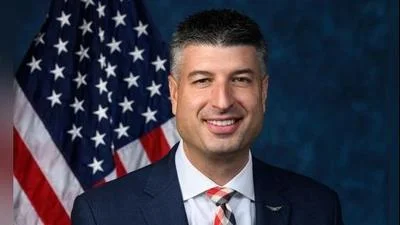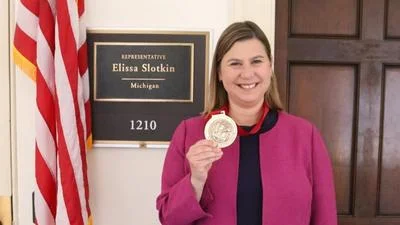Kevin M. Guskiewicz President at Michigan State University | Official website
Kevin M. Guskiewicz President at Michigan State University | Official website
The 2024 presidential election is underway, with President Joe Biden securing the Democratic nomination and former President Donald Trump representing the Republicans. This sets up a rematch of the 2020 presidential race. In Michigan, key statewide elections are also taking place, including an open U.S. Senate seat following Sen. Debbie Stabenow's retirement, which could influence Senate control.
Michigan State University (MSU) experts are available to discuss various aspects of the presidential and state elections. Corwin Smidt, an associate professor at MSU, noted that "Michigan continues to trend toward being a battleground state," highlighting challenges within the Republican party and potential gains due to Democratic retirements and redistricting.
Matt Grossmann from MSU’s Institute for Public Policy emphasized the evolving nature of the presidential nomination process: “The presidential nomination process evolved out of reforms to the delegate selection process for those conventions... Michigan has an opportunity to set the terms for future elections.”
Dante Chinni from MSU’s School of Journalism discussed voting patterns: “In Michigan, and in other states, the 2024 election will be determined by the margin of victory in different kinds of places.”
Jordan Cash from James Madison College highlighted legal issues impacting this election cycle: “The 2024 election is already shaping up to be one of the most unusual elections in American history... With former president and likely Republican nominee Donald Trump facing indictments at both the state and federal levels."
Brian Kalt from MSU's College of Law commented on constitutional questions: “A lot of constitutional law questions that seemed purely theoretical are now front and center in our election campaign."
Ryan Black from MSU’s Department of Political Science pointed out potential shifts in judicial appointments: “Results of the 2024 election have the potential to profoundly shift the center of gravity in the politics of appointments to the federal judiciary."
Erica Frantz warned about risks associated with personalist parties: “Today’s democracies typically fall apart at the hands of their elected leaders... For the U.S., this implies that...the more American democracy is vulnerable to collapse from within should Trump return to presidency.”
Dustin Carnahan focused on misinformation effects: “While research suggests that political misinformation does not have a profound impact on voters’ decisions... advances in AI technology pose significant challenges."
Eric Juenke addressed diversity among candidates: "We will be seeing a continued diverse candidate pool this cycle... While we do seem to have a rematch at top ticket."
Daniel Bergan provided advice on constituent communications with policymakers.
Sarah Reckhow discussed polarization impacts on education politics.
Erin Kramer emphasized student participation through MSUvote initiatives.
David Ortega highlighted economic concerns related to food prices.
Robert Brathwaite discussed international relations' impact on U.S. policy amid global conflicts.
Jason Miller addressed supply chain issues influenced by foreign policy decisions.
Antonio Doblas Madrid commented on inflation expectations affecting voter perceptions.






 Alerts Sign-up
Alerts Sign-up